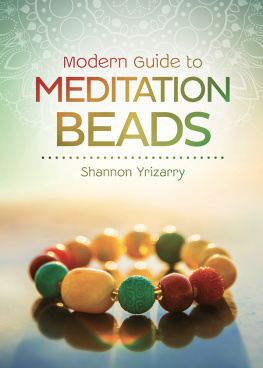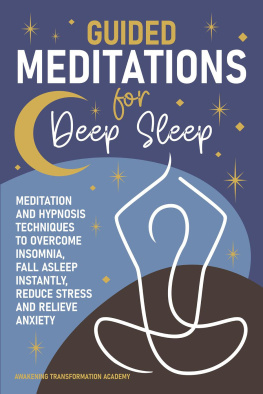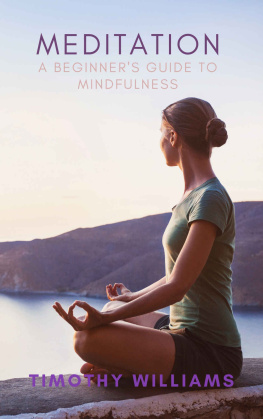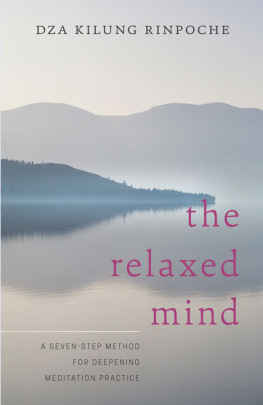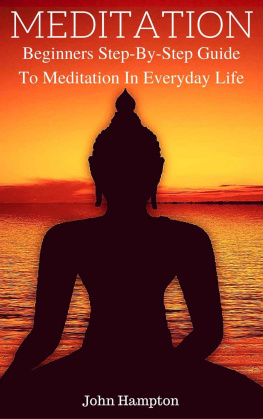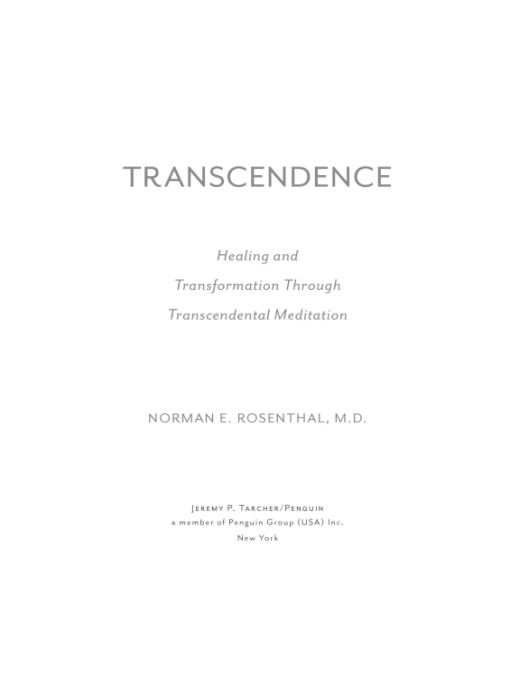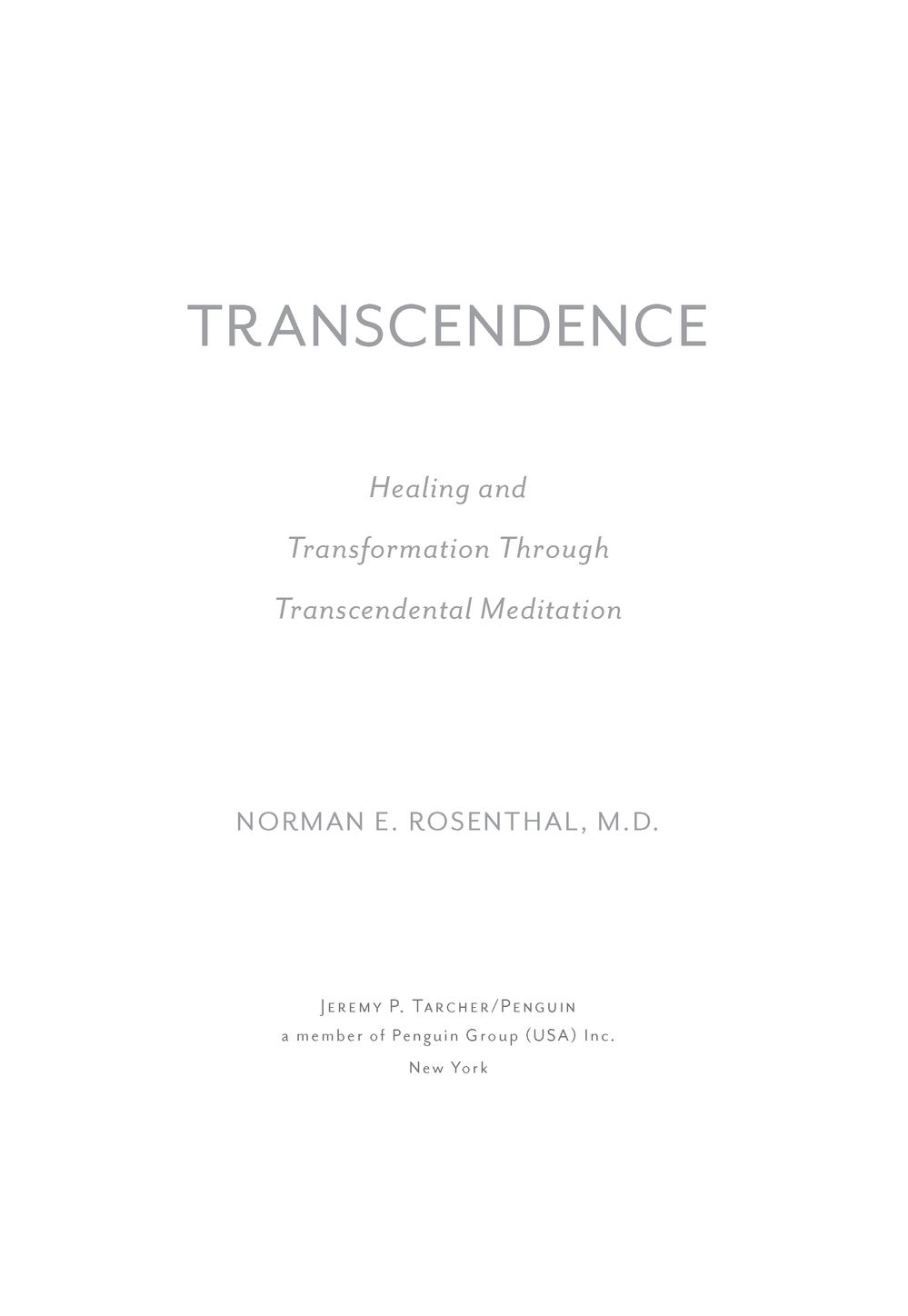Table of Contents
For
Josh, Liana, and Ari
FOREWORD
Mehmet C. Oz, M.D.
LET ME RETURN to my surgical roots and cut to my conclusion: Dr. Norman Rosenthals Transcendence: Healing and Transformation Through Transcendental Meditation is a profoundly important book on a topic that you need to know a lot more about. Moreover, it has been written by an eminently qualified expert: an internationally respected psychiatrist and twenty-year senior researcher at the National Institute of Mental Health, who first described seasonal affective disorder and pioneered the use of light therapy.
So, why is this book so incredibly valuable?
Stress wears us down, drains us of the joys of life, fuels countless diseases and disorders, and is slowly, or rapidly, killing us. Cardiovascular disease, obesity, diabetes, as well as digestive disorders, anxiety, and depression, are often caused or exacerbated by stress. You know these grim realitiesand hopefully you are already doing something to neutralize stress, such as eating better and exercising more. But there is something you may not be doing, but which you really must do, beyond exercise and diet. And that is promoting your own mental resilience: developing your natural, innate ability to overcome mentally the mounting pressures and demands that pervade our lives. Stated bluntly, you must promote mental resilience or lose the fight against stressand suffer the consequences.
Dr. Rosenthals Transcendence brilliantly addresses the importance of mental resilienceand much more. It reveals, in a most readable and enticing fashion, the need to accessthrough a simple, time-tested meditation techniquethe silent core of our own Being; and it recounts the unprecedented, scientifically documented, wide-ranging benefits that naturally ensue.
I have known Dr. Rosenthal and his work for more than ten years, and am happy to count him as a respected colleague and one of my panel of experts to whom I turn for advice about the mindin sickness and in health. I have always admired Dr. Rosenthal for his ability to tackle the most challenging emotional problems we all face. In Transcendence , Dr. Rosenthal addresses his clinical and literary skills to the subject of Transcendental Meditation as a promising technique for helping a wide range of people both physically and emotionally.
As a cardiovascular surgeon, I am familiar with the ability of TM to reduce high blood pressure, the so-called silent killer. In many controlled studies, simply but elegantly described in Transcendence, we learn that this blood pressure reduction is not only statistically significant, but clinically significant as well. This is reflected in the ability of TM to greatly reduce cardiac mortality in people at risk for heart disease. But Transcendence takes us far beyond the physical benefits of TM, and advances a persuasive argument that TM may help people with a wide range of emotional conditionsincluding anxiety, depression, attention deficit disorder, and addictionsas well as veterans experiencing post-traumatic stress disorder. The list may sound overblown, but Dr. Rosenthal makes his case well by offering gripping stories of emotional transformation, backed up by impressive research and logical explanations for how TM may provide such varied benefits.
There are chapters on the potential value of TM in inner-city schools, prisons, and shelters for the homeless that make for fascinating reading, and offer genuine hope for people trying to make their way in these difficult environments. In one of my favorite chapters in Transcendence , we learn how TM can help even highly successful people live fuller and richer lives. Finally, there is an explanation for how TM might improve the level of harmony, both within ourselves and the world outside.
Dr. Rosenthal is one of those rare professionals who are able to mix authority and accuracy with riveting stories that read like a novel. In Transcendence, he has given us all a gift that will enlighten, entertain, and perhaps even transform. This will become the go-to book for those searching for the wisdom within meditation.
Mehmet C. Oz is the Emmy Awardwinning host of The Dr. Oz Show and vice chairman and professor of surgery, New York PresbyterianColumbia University.
Part I
TRANSCENDENCE
INTRODUCTION
My Journey Back
We shall not cease from exploration
And the end of all our exploring
Will be to arrive where we started
And know the place for the first time.
T. S. ELIOT
HOW OFTEN HAVE you set out upon some course of explorationperhaps a relationship, a journey, or a field of studythen put it aside for a time, only to find the experience quite different when you return? The Greek philosopher Heraclitus said you can never step in the same river twice, because the second time you have changed, and therefore the experience is different. That is how it was for me and Transcendental Meditation (TM).
The first time I ever heard of TM, I was a medical student in Johannesburg, South Africa. It was the early seventies, and at that time, even in apartheid South Africa, the world of the young was rustling with promises of change. Anything seemed possible. The Beatles had gone to India to learn TM from its modern-day founder, Maharishi Mahesh Yogi. This quest for exotic wisdom was embodied for me in the words of the rock musical Hair, Ive been to India and saw the yogi light.
I was intrigued. What was transcendence? What was the yogi light, and how might I find it?without actually going to India (which was not in the cards either financially or logistically). I was drawn to the promise of an alternative type of consciousness, one that embraced all human beings and the universe to boot, yet involved no mind-altering drugs.
Happily, it turned out that the practice of Transcendental Meditation had already reached the far shores of Africa, so a fellow medical student and I headed off to a small house in the suburbs that doubled as a TM training center. I was reassured to discover that Transcendental Meditation is in no way a religious practice. No one asked me to buy into any belief system. Instead, I learned that TM is simply a technique of the mind that can be practiced by people of any religion or of no religion at all. The technique goes back thousands of years and was taught to Maharishi Mahesh Yogi by his own teacher in the Himalayas. Maharishi extracted the TM technique from its religious context and distilled it to its essence, which he believed could be of value to people of all creeds in many situations.
Maharishi brought the technique first to India (in 1955) and then to the rest of the world, including the United States, which he first visited in 1959. Although for many Westerners Maharishi is most widely known for his contact with the Beatles in the 1960s, that was only a small part of his career. He was the founder and leader of the worldwide Transcendental Meditation program for over fifty years and devoted his life to sharing his insights and knowledge both in his writing and his public appearances. He also promoted scientific testing of the technique, to help bring meditation into the scientific mainstream.
As part of our TM instruction, my friend and I were each given our own mantra (a sound-word-vibration). Then, over several days, we were taught how to think the mantra as we sat in quiet relaxation. We were to practice for twenty minutes twice a day. Although I found it very soothing, I did not feel any lasting effectwhich in retrospect is hardly surprising, since I seldom practiced. In the busy life of a medical student, TM slid down my priority list, then off. It was replaced by studies, dissections, autopsies, and eventually patients, the most rewarding part of a medical education. Add in my rudimentary attempts at a social life, and no time seemed left in the day.


